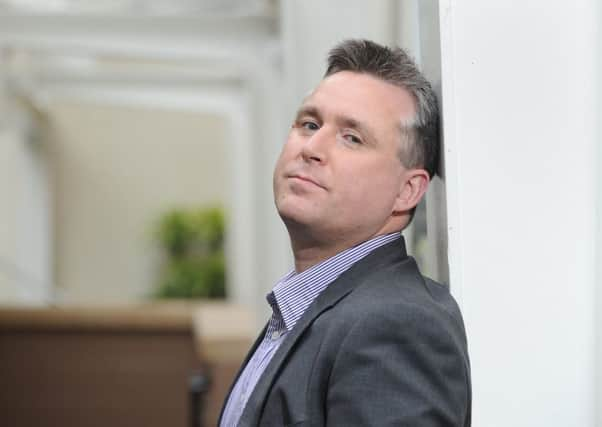Monday interview: Keith Neilson, chief executive of Craneware


He jokes that he is the “classic failed physicist” who just made it through a degree in the subject, but Keith Neilson, chief executive of Edinburgh-based software business Craneware, evidently showed a flair for both tech and income-generation at an earlier age.
“I found I wasn’t very good at academic studying. I like the more dynamic nature of business and development and those sides of things,” he says.
Advertisement
Hide AdAdvertisement
Hide AdGrowing up in the era of early home computers such as the Sinclair ZX-81 and BBC Micro, Neilson recalls: “In those days we didn’t have games we could play on them. You had to make your own and so learnt to program relatively early.”
Along with school friend Gordon Craig, “even as kids we used to write games and sell them round the neighbourhood. You waited 20 minutes to load a game into [the computer] so it was just as easy to start to write your own things”.
What were the games like? “Pretty rubbish,” he laughs, but it evidently stood the pair in good stead. “We used to make money from it, so that’s maybe where the business part came from.”
In 1999, Neilson and Craig formed Craneware, specialising in billing software for the US healthcare market, with its boss saying that now “we’ll be well through having sold more than half a billion dollars’ worth of software”.
Neilson says it is incredible that the firm has just celebrated its 17th anniversary. “We still think of ourselves as a young company, so I’m not sure if that’s good or delusional.”
With the business having IPO’d in 2007, it has also been a public company for longer than a private one, with Neilson saying: “In some ways it feels like only yesterday that we were doing the listing documents, yet in other ways so much has happened in that time.”
Adding that the firm has “transformed” in the interim, “certainly we would like to think that our shareholders are very happy with us”.
In its half-yearly results, published in March, Craneware announced a 15 per cent year-on-year jump in pre-tax profit to $6.1 million (£4.2m) and a 7 per cent increase in revenues to $23.1m, stating that it is “confident in meeting market expectations for the full year and delivering significant growth”.
Advertisement
Hide AdAdvertisement
Hide AdNeilson sees plenty of room for expansion in the US healthcare market. Craneware covers just over a quarter of US hospitals, equivalent to about 1,300, “which is a good footprint in its own right”.
The company has about 220 staff globally with about 100 in Scotland, and stresses that its gender balance is far better than the tech sector average.
Noting the global shortage of suitably qualified tech staff, Neilson says: “We’re trying to differentiate ourselves in all sorts of different ways. We’re trying to upscale all the people that we’re bringing in for growth so that we’re well-positioned.
“We’re focused very much on the US just now because it’s the biggest consumer of healthcare in the world, so if we can crack that and… use our systems to really understand the data side of hospitals, that will be able to be taken elsewhere and impact healthcare.
“There’s a number of different opportunities that are all adjacent to where we sit within the hospital market. There are probably only about another ten companies that are in that same kind of footprint in the US.”
He adds: “We’re one of the best-placed companies globally just now from a software perspective to really be able to influence healthcare and drive it so that healthcare is more affordable for more people.”
Neilson says the focus now is on scaling up and looking at what he calls the value cycle, connecting financial, operational and clinical data “for a hospital for better outcomes so that they can get better value out of the amount of money they spend on healthcare and get better outcomes for patients.”
The firm has premises in Georgia, Arizona, Massachusetts, and while its headquarters sits thousands of miles from its customers, Neilson stresses: “Scottish companies can service global markets very easily.”
Advertisement
Hide AdAdvertisement
Hide AdHe adds: “We do need to sing about those successes, not for just ourselves, but for the software community in Scotland.
“I think we forget that sometimes we can do some phenomenal things. We have got an opportunity for Scotland to really excel in this. You can develop tech and then deliver it anywhere in the world.”
30-SECOND CV
Born: 1969
Education: Balerno High School, Heriot-Watt University
First job: Picking daffodil bulbs
Ambition while at school: Architect
Favourite mode of transport: Airplane
Music: Anything other than acts from X Factor and musicals
Kindle or book: Kindle
Reading material: Christopher Brookmyre
Can’t live without: Smartphone
What makes you angry: Stupid people
What inspires you: Clever people
Favourite place: Scottish Highlands and Franschhoek, South Africa
Best thing about your job: The ability to potentially make a difference